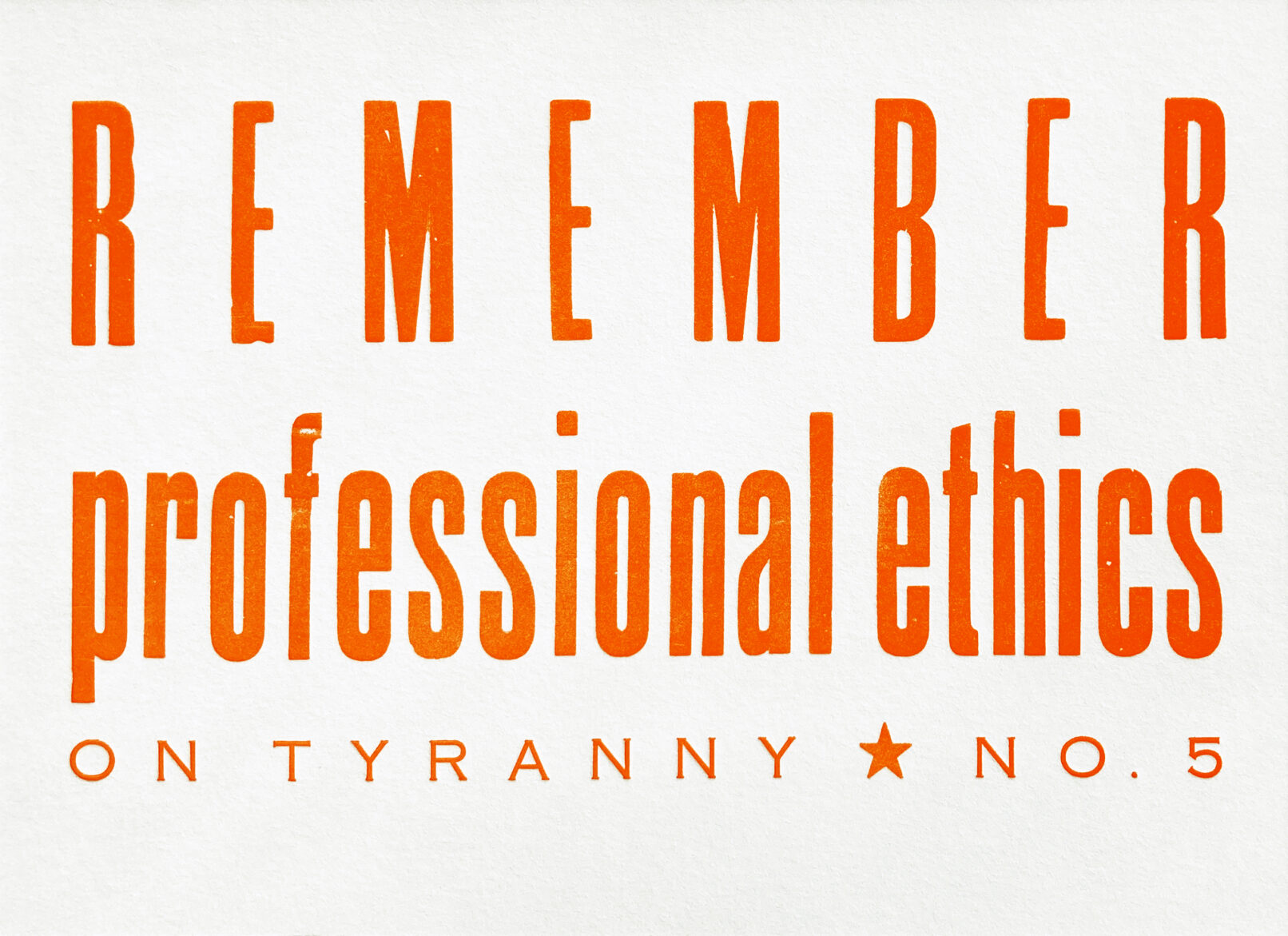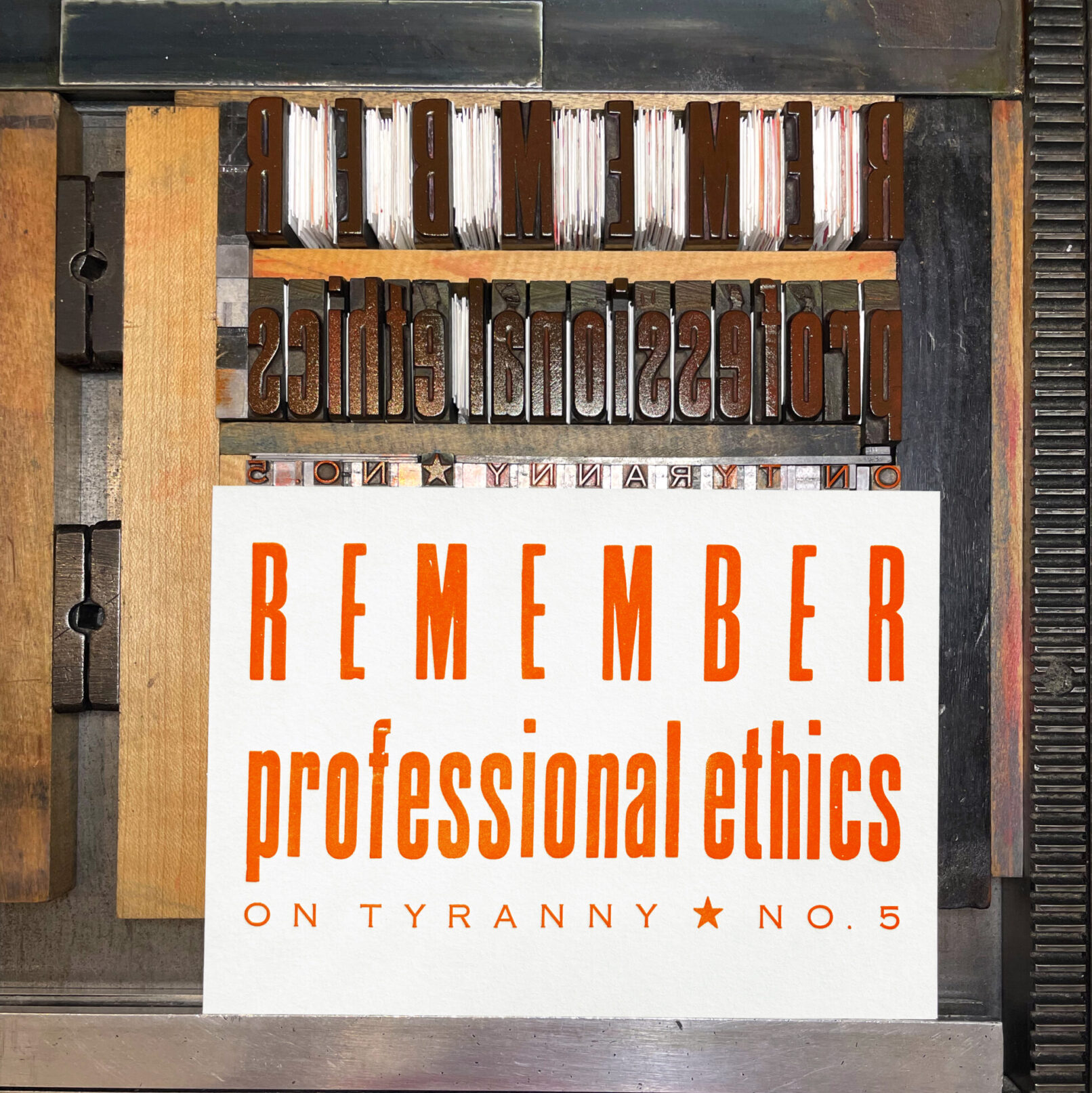“When political leaders set a negative example, professional commitments to just practice become more important. It is hard to subvert a rule-of-law state without lawyers, or to hold show trials without judges. Authoritarians need obedient civil servants, and concentration camp directors seek businessmen interested in cheap labor.”
Timothy Snyder, On Tyranny
U.S. Supreme Court Justice Clarence Thomas is a prime example of someone who has forgotten professional ethics and has accepted money, gifts, and trips without declaring them and has not recused himself from cases with a conflict of interest. Even when he has recused himself, as in the instance of a case concerning the January 6 Capitol attack, the motivation may have been more damage control than ethical considerations (source).
Beyond the questionable ethics of certain Supreme Court justices, the 2024 election may also hinge on secretaries of state and county and state election officials remembering–or forgetting–professional ethics when Trump and the Republicans pressure them to “find votes” in key counties. (This is why organizations like Stacey Abrams’s Fair Fight are so important to support.)
Finally, in his YouTube video about this lesson, Snyder asks the question: do business people have professional ethics? Historically, he argues, big business that was opposed to labor unions and opposed to democracy thought the world would be easier to handle without either. Similarly, in historical coup attempts, if important businessmen–or military leaders–were on the side of the coup attempt, it was more likely to succeed. Elon Musk’s recent pledge to give $45 million a month to a pro-Trump PAC is something to pay attention to in this context, even if Musk himself denies the claim. What big business does in the upcoming months and years will say a lot about where the country is heading as a whole, since as we discussed in “Defend Institutions,” institutions are composed of individuals, and individuals can be corrupted.
We are certainly not “big business,” but we do both have small businesses. Even though we don’t have the kind of political power that large institutions and businesses have, it’s important to consider our own “code” of professional ethics. Like doctors taking the Hippocratic Oath (or a modernized version of it), or just the general public following something like “the Golden Rule,” what are our professional ethics? As business owners, we try to do our best to honor the needs of our clients, employees, and ourselves while aiming to create an inclusive and welcoming environment. If we are printmakers and artists, do we honor intellectual property and aim to be as accurate as possible in our depictions of others and of the world we aim to portray? If we are parents, do we practice what we preach to our children? As Snyder says in the introduction to this tenet, “Authoritarians need obedient civil servants.” There will always be “bad actors” among us, but if civil society–and society at large–refuses to sway from their professional and personal ethical codes, those in power will have no chance.
Hear Timothy Snyder speak about this lesson on YouTube.
This lesson was letterpress printed in Orange 21 ink on a Vandercook proofing press.

